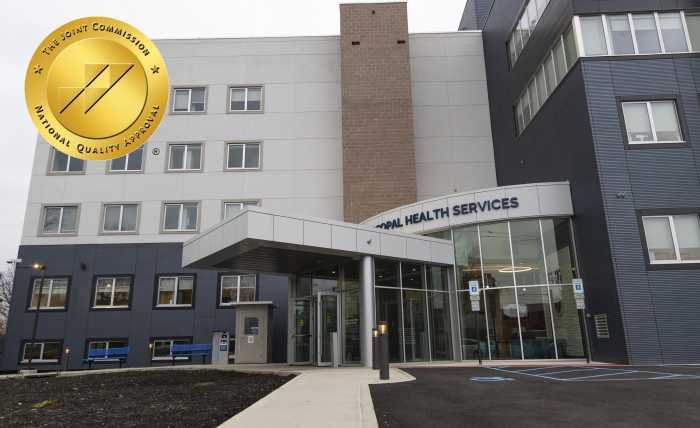Caribbean
The Fourth Meeting of National Authorities of the Americas on Trafficking in Persons has called on the Caribbean and all member-countries of the Organization of American States (OAS) to redouble efforts to combat the scourge.
The OAS, which convened the workshop, said 1.8 million people in the hemisphere are affected by trafficking in persons.
The Inter-American Declaration to Address Trafficking in Persons or Declaration Brasilia, released at the end of the meeting recently, highlights the need to “prevent trafficking in persons by designing, improving and implementing public policies that address social, economic, cultural, security and migration-related variables that adversely affect women, minors, and indeed, all vulnerable sectors of society.”
The approved document establishes that “the extent to which member states implement part or all this work plan is at the discretion of each member state, in accordance with its legal system.”
Head of the Secretariat for Multidimensional Security of the OAS Adam Blackwell noted that trafficking does not only consist of sexual exploitation, but many items of legislation “contemplate other manifestations of trafficking,” such as labor exploitation, organ extraction, domestic servitude, forced marriages and illegal adoption of children for exploitation.
Barbados
Barbados’ continued heavy dependence on imported items — especially petroleum products — has sustained its $2 billion trade deficit with the rest of the world in the first nine months of this year.
New information released by the Barbados Statistical Service (BSS) showed that between January and September, Barbados spent $2.5 billion on imports, while exporting $676.6 million of its own goods.
An analysis prepared by BSS statistician Asokore Beckles said this meant there was a $1.91 billion “accumulated visible trade deficit” compared with $1.88 billion between January and September last year.
Trade exports showed a decrease of some $12.6 million less than imports for the same period in 2013, a decrease of 0.7 percent.
“The value of re-exports decrease by $12.7 million or 4.4 percent over the corresponding period in 2013,” Beckles said. Barbados also has a significant trade imbalance with CARICOM.
Total exports to CARICOM for January to September were $17.4 million less than total exports for the corresponding period in 2013, a decrease of 6.8 percent. Domestic exports decreased by approximately $12 million or 5.6 percent over the same period in 2013.
As for the countries from which Barbados bought the most of its goods, these were led by CARICOM ($811.8 million) and the United States ($801.7 million).
Dominica
Officials on the Nature Isle, Dominica, have said they are not at all threatened by the competition which now exists on the market for bananas.
Head of the Plant Protection and Quarantine Unit Ryan Anselm said Dominica has the preferred fruit which is of a higher quality when compared to others.
Antigua & Barbuda and many other islands in the Caribbean have been importing the fruit from alternative sources, as Dominica experienced a 50 to 60 percent drop in banana production, due to the Black Sigatoka disease.
Chiquita bananas and bananas from other Caribbean islands can be found on the shelves of many supermarkets on the island.
But despite this, Anselm said he is confident that with the trade agreement which exists between Dominica and other countries within the Caribbean, the island will regain its fair share of the market.
The head of the plant protection and quarantine unit also indicated that the country is in the process of implementing a five-year strategic plan, which will assist them in marketing the produce as well as managing the disease.
“Our target is to rehabilitate about 500 acres of banana and approximately 300 acres of plantain in the first year, and as we speak, the National Fair Trade organization has rehabilitated approximately 250 acres of bananas,” Anselm said.
He said the first and second quarter of 2015, production will increase.
Guyana
A 47-year-old Guyanese pilot and CEO of Exec Jet Club LLC, a company based in Florida, USA was granted US$100,000 bail when he appeared in a court in Puerto Rico charged with money laundering.
Khamraj Lall was arrested and charged after authorities in Puerto Rico found more than US$600,000 in undeclared cash inside his plane.
A federal court judge granted Lall bail while a grand jury decides whether to indict him.
Lall’s company has flown Guyana President Donald Ramotar of his native Guyana on official trips.
Lall was the co-pilot on a flight to Guyana when U.S. federal agents searched the aircraft during a refueling stop in Puerto Rico.
He and two others on board reported carrying about US$12,000, but agents found US$620,588 in plastic bags inside the plane, according to court documents.
U.S. law requires amounts over $10,000 to be declared. Lall was held on suspicion of intent to evade currency reporting.
Haiti
Haiti’s President Michel Martelly has announced the establishment of a commission to help deal with the country’s worsening political crisis as opposition demonstrators planned to continue their street protests to force him out of office.
In a brief nationwide address, Martelly, who has been holding talks with various stakeholders to deal with the crisis, acknowledged that the French-speaking CARICOM country is facing many challenges.
“The country is divided. The problems are many. The problems are complicated,” he said.
Martelly has been holding talks with several social and political groups in a bid to pave the way for holding of long-delayed election to renew two thirds of the 30-member Senate, the entire Lower Chamber and hundreds of local government bodies.
Political observers note that by Jan. 12, next year, the Haitian parliament will become dysfunctional with only 10 senators left, while 16 is required to hold a session.
Jamaica
Some Caribbean and Central American countries are bracing for cutbacks in shipments of cut-rate oil from Venezuela, as Caracas struggles with sliding crude oil prices and a spiraling economic crisis.
For a decade, the 13 beneficiaries of Venezuela’s largess have depended deeply on the oil to finance social spending and infrastructure, and rewarded Caracas with diplomatic support on the international stage, according to regional diplomats.
Several participants in the program, called PetroCaribe, are preparing for further declines, which diplomats said stand to upend spending plans and tip some economies into recession.
“If PetroCaribe pulls out of Jamaica I don’t know how we will manage,” said Verona Barrett-Brown, the principal of a Kingston-area primary school that displays the name of Venezuela’s national oil company, Petroles de Venezuela.
Jamaica’s capital projects funded with Venezuelan oil have provided aid to small farmers and businesses, refurnished a zoo and replaced pit latrines in schools with flushing toilets.
In tiny Grenada the discounted Venezuela oil funds 40 percent of social programs, from text books and free lunches for children to paying for roads and buses.
Haiti named an airport after Venezuela’s late president Hugo Chavez, who founded PetroCaribe in 2005 and uses the oil money for food distribution programs and for monthly allowances for the poor.
Trinidad
A top Al Qaeda terrorist with ties to Trinidad and Tobago and Guyana was killed recently in Pakistan.
Adnan Gulshair El Shurkrijumah, 39, who is known to have lived in Trinidad, was killed by Pakistan military.
The Federal Bureau of Investigation (FBI) described El Shukrijumah as Al Qaeda’s global operations chief and believed he was in possession of a passport from Trinidad and Tobago among other countries.
During his visit to Trinidad, El Shukrijumah is said to have stayed at a Muslim organization in Central Trinidad.
In 2003, the FBI, assisted by local law enforcement in T&T, searched for him but he was not found.
— compiled by Azad Ali


























